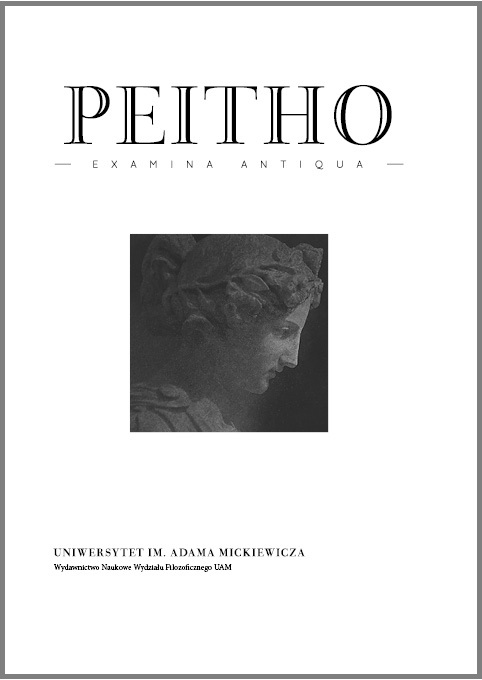Platone, Prm. 133b4- c1 / 134e9- 135b2. Quali logoi nella gumnasia per un tis refrattario alla persuasione e sensibile alle contraddizioni come Antistene?
Plato, Prm. 133b4–c1 / 134e9–135b2. Which logoi in the gumna-sia for thetis unpersuaded and sensitive to contradictions as is Antisthenes?
Author(s): GIUSEPPE MAZZARASubject(s): Metaphysics
Published by: Uniwersytet Adama Mickiewicza
Keywords: Logos oikeios; allotrios; alloios; heteros; enantios; diaphora; sumplokē onomatōn; hen kai pan; holon; gumnasia;
Summary/Abstract: In this study, I show how Plato in the Parmenides reprises the encounter with the Phaedo’s Antisthenes, whom I elsewhere assumed to be one of the various tis that get examined in the dialogue. Now, with the Parmenides’ tis, a similar situation arises: this Antisthenes embodies such characteristics as being “an expert in many areas”, “not without natural gifts” and “capable of following with critical intelligence” the logoi taken from “distant premises.” In the four logoi of the gumnasia, I highlight how Plato, in developing his exercise, proceeds on his own way without openly arguing with any tis and how, despite his detached attitude, his hodos, while interweaving with that of his colleague Antisthenes, enters into a conflict. I then demonstrate how the two paths, despite having a common aporetic beginning (the objections of Gorgias to Parmenides and the testimony of Proclus against Antisthenes), at times overlap and at times are mutually exclusive. From this, I also argue that whoever wrote the dialogue must have been aware that the path, although apparently linear and rectilinear, was in fact bumpy and tortuous.
Journal: Peitho. Examina Antiqua
- Issue Year: 13/2022
- Issue No: 1
- Page Range: 83-124
- Page Count: 42
- Language: Italian

